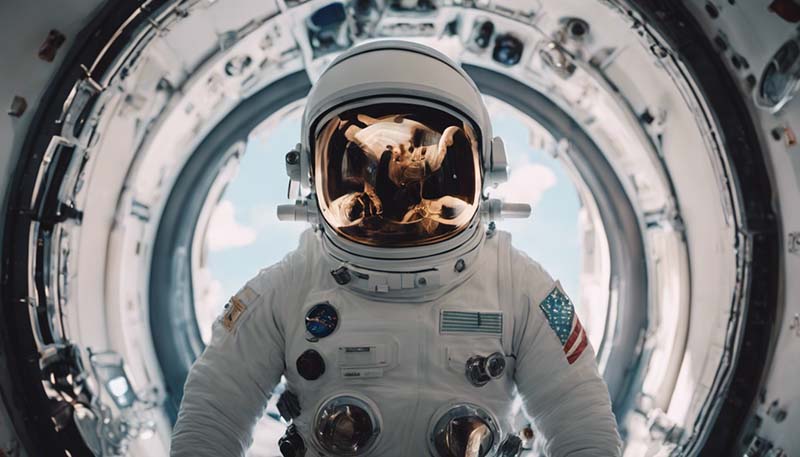Space exploration has long been a fascinating endeavor for humanity, pushing the boundaries of our knowledge and capabilities. As we continue to venture further into the cosmos, the training and preparation of astronauts become increasingly important. One of the most critical aspects of this training is addressing the psychological challenges that astronauts face during space travel. This article will delve into the various stages of astronaut training and the psychological challenges they encounter, as well as the coping mechanisms and support systems in place to help them succeed.
Astronaut Selection and Training
The journey to becoming an astronaut begins with a rigorous selection process. Candidates must possess a strong academic background, typically in fields such as engineering, biology, or physics, as well as relevant work experience. In addition to their technical expertise, candidates must also demonstrate exceptional physical fitness, mental resilience, and the ability to work well in a team.
Once selected, astronauts undergo a comprehensive training program designed to prepare them for the challenges of space travel. This program includes a variety of disciplines, such as:
- Technical training: Astronauts learn about the systems and equipment aboard spacecraft, as well as the scientific experiments they may conduct during their missions.
- Physical training: Astronauts undergo a strict regimen of exercise and fitness tests to maintain their health and endurance in the demanding environment of space.
- Teamwork and leadership: Astronauts participate in simulations and team-building exercises to develop their communication and collaboration skills.
- Survival training: Astronauts learn essential survival skills, such as wilderness survival, water landings, and emergency procedures in case of an accident or equipment failure.
Psychological Challenges of Space Travel
Space travel presents a unique set of psychological challenges that can significantly impact an astronaut's well-being and performance. Some of the most common challenges include:

- Isolation and confinement: Astronauts spend months aboard spacecraft, confined to a small living and working space. This isolation can lead to feelings of loneliness, depression, and anxiety.
- Sleep disturbances: The absence of a regular day-night cycle in space, combined with the confined environment, can disrupt an astronaut's sleep patterns and lead to fatigue and decreased cognitive function.
- Interpersonal conflicts: Living and working in close quarters with a small group of people can lead to interpersonal conflicts and tensions, which can negatively affect the crew's morale and performance.
- Cognitive and perceptual changes: The microgravity environment of space can cause cognitive and perceptual changes, such as spatial disorientation and difficulty with coordination and fine motor skills.
Coping Mechanisms and Support Systems
To address these psychological challenges, astronauts are provided with various coping mechanisms and support systems. Some of these include:
- Pre-mission psychological training: Astronauts receive training in stress management, relaxation techniques, and cognitive-behavioral strategies to help them cope with the psychological demands of space travel.
- Regular communication with family and support personnel: Astronauts have access to regular communication with their families and support teams on Earth, providing emotional support and helping to alleviate feelings of isolation.
- Leisure activities and hobbies: Astronauts are encouraged to engage in leisure activities and hobbies during their downtime, such as watching movies, reading, or playing musical instruments, to help maintain their mental well-being.
- Peer support and team-building exercises: Astronauts participate in team-building exercises and rely on each other for emotional support, fostering a sense of camaraderie and unity among the crew.
- Mental health monitoring and intervention: Astronauts are regularly monitored for signs of psychological distress, and mental health professionals are available to provide support and intervention when necessary.
Conclusion
As humanity continues to explore the cosmos, it is essential that we prioritize the psychological well-being of astronauts. By understanding and addressing the unique challenges of space travel, we can ensure the success of future missions and the continued advancement of space exploration. Through rigorous training, coping mechanisms, and support systems, astronauts are better equipped to face the psychological challenges of space travel and make groundbreaking discoveries in the vast expanse of the universe.
Leave Your Comments